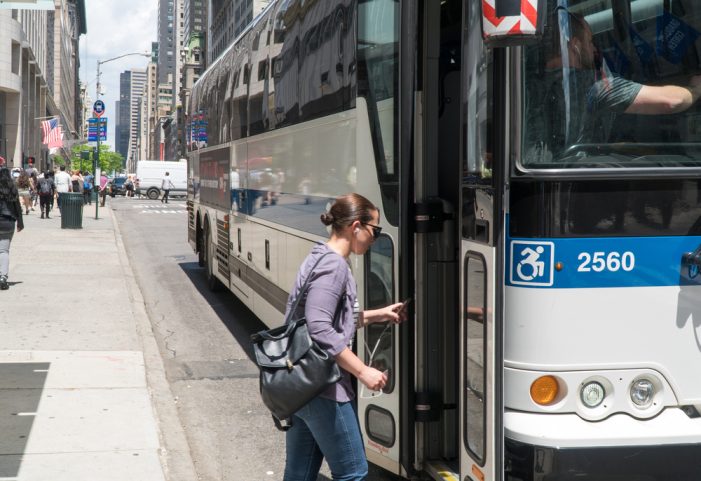By Esther Claudette Gittens | Editorial credit: BrandonKleinPhoto / shutterstock.com
New York City, with its bustling streets and extensive public transportation network, sees millions of residents and visitors commuting daily. Unfortunately, crime incidents sometimes occur, leaving victims in distress. To aid those affected, NYC offers a comprehensive range of benefits and resources tailored to victims of crimes occurring on buses, trains, or the streets. These benefits aim to provide financial, emotional, and legal support, ensuring that victims can recover and regain stability.
- Compensation Programs
One of the primary support mechanisms for victims of crimes in NYC is the New York State Office of Victim Services (OVS). This state agency provides financial assistance to individuals who have suffered physical, emotional, or financial harm due to a crime. Key aspects of the program include:
- Eligibility: Victims of crimes such as assault, robbery, or harassment on public transportation or streets can apply. To qualify, victims must report the crime to law enforcement within a reasonable timeframe and cooperate with the investigation.
- Types of Compensation:
- Medical Expenses: Victims can receive reimbursement for medical treatments, hospital stays, and therapy required as a result of the crime.
- Counseling Services: Psychological counseling costs are covered to address trauma or emotional distress caused by the incident.
- Lost Wages: If the victim is unable to work due to injury or emotional distress, compensation for lost income is available.
- Funeral Costs: In the event of a fatality, the program assists families with funeral and burial expenses.
- Essential Personal Property: Reimbursement is available for essential items lost or damaged during the crime, such as phones, glasses, or identification documents.
- Access to Crisis Counseling and Support Services
Victims often need immediate emotional and psychological support. NYC provides several resources, including:
- Victim Assistance Programs (VAPs): These programs, often managed by nonprofit organizations and local law enforcement agencies, provide crisis intervention and ongoing counseling.
- Hotlines and Helplines:
- NYC WELL: A confidential mental health helpline offering counseling and connections to resources.
- Safe Horizon: A nonprofit organization operating a 24-hour hotline (1-800-621-HOPE) for victims of crimes, offering referrals to emergency housing, counseling, and legal aid.
- Train and Bus-Specific Resources: The Metropolitan Transportation Authority (MTA) works with organizations to assist victims of crimes on public transit. They often provide information on filing claims, reporting incidents, and seeking mental health support.
- Legal Aid and Advocacy
Navigating the legal system can be challenging for crime victims. NYC offers various legal aid services to help victims understand their rights and participate in legal proceedings.
- Victim Advocates: Trained advocates assist victims in understanding the criminal justice process, providing courtroom accompaniment, and offering updates on case progress.
- Free Legal Services: Through organizations like Safe Horizon and Legal Aid Society, victims can access free or low-cost legal representation for:
- Filing restraining orders.
- Seeking compensation claims.
- Pursuing civil lawsuits against perpetrators.
- Special Provisions for Transit Crimes:
- Victims of crimes on MTA buses or trains can access specific legal resources through the MTA Police Department and the NYC Transit Adjudication Bureau.
- The MTA offers an online portal for victims to report crimes and request legal assistance, streamlining the process for transit-related incidents.
- Safety and Emergency Housing
Victims who feel unsafe in their current living situation due to the crime can access housing support:
- Emergency Shelter Programs: Operated by organizations like Safe Horizon, shelters provide temporary refuge for victims of violent crimes, ensuring safety and anonymity.
- Relocation Assistance: For victims who need to move permanently due to safety concerns, the OVS provides relocation expense reimbursement.
- Subway Safety Initiatives:
- The MTA collaborates with NYC law enforcement to increase patrols on buses and trains. While preventive, these measures also ensure victims feel safer returning to public transit after a crime.
- Victims can request special safety measures, such as police escorts in severe cases.
- Community and Advocacy Support
Community engagement and advocacy groups play a crucial role in supporting crime victims:
- Neighborhood Watch and Community Safety Programs: Victims can participate in or seek support from local groups promoting neighborhood safety.
- Crime Victim Support Groups: Sharing experiences and advice within a group setting can help victims cope emotionally. Many nonprofits in NYC organize such groups, tailored specifically for transit or street crime victims.
- Awareness Campaigns: Organizations like the MTA conduct awareness campaigns about available victim benefits, encouraging victims to seek help without hesitation.
- Compensation for Property Damage and Financial Losses
In addition to physical and emotional damages, victims often incur financial losses due to theft or property damage. Programs addressing these needs include:
- Property Damage Claims: Victims can file claims for lost or damaged items, such as phones, wallets, or bicycles.
- Identity Theft Support: For victims of theft resulting in identity fraud, NYC offers legal assistance to resolve fraudulent activity and recover stolen funds.
- Collaboration with Law Enforcement
NYC’s police departments, including transit police, are integral to the victim support ecosystem:
- Specialized Units: Units like the NYPD Transit Bureau focus on addressing crimes on buses and trains, ensuring cases are handled sensitively.
- Victim Resource Officers: These officers are trained to guide victims through the process of reporting crimes and accessing benefits.
Conclusion
Victims of crimes on NYC’s buses, trains, or streets have access to a robust network of resources, ranging from financial compensation and legal aid to emotional support and housing assistance. While the trauma of such incidents can be profound, NYC’s multifaceted approach ensures that victims receive the support they need to recover and regain their sense of security. It’s essential for victims to be aware of these benefits, report crimes promptly, and utilize available services to navigate their path to recovery.

